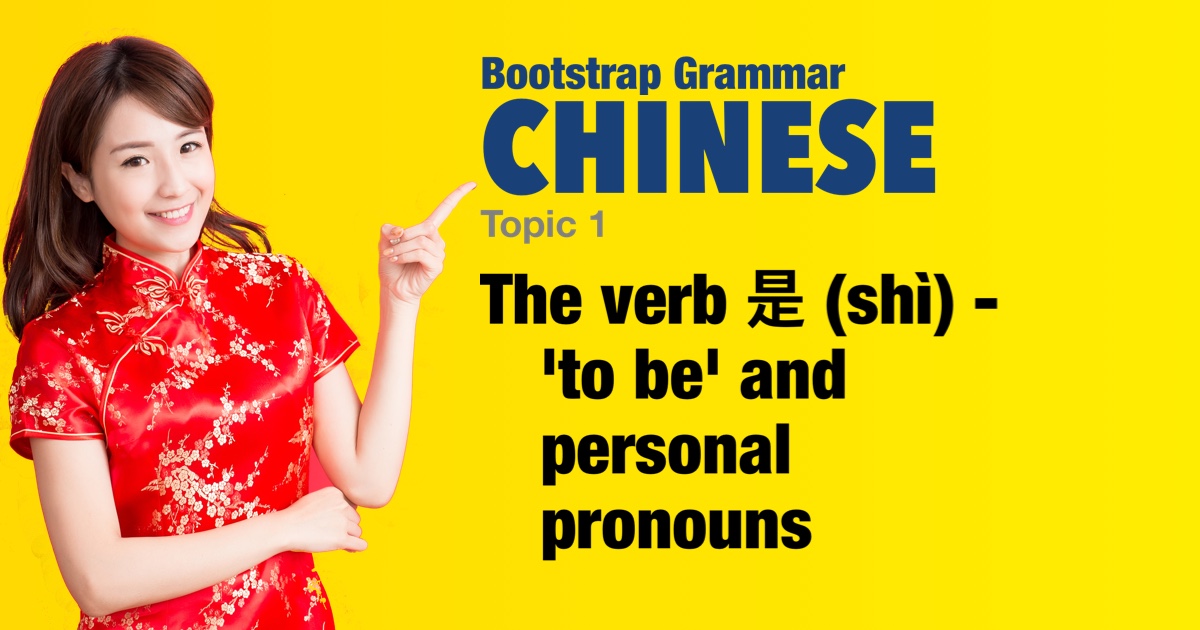Chinese grammar - The verb 是 (shì) - 'to be' and personal pronouns |
|||
|
|||
The Chinese word 是 means 'to be.' It is pronounced . It can be used to equate two nouns (things), so [A] 是 [B] means '[A] is [B].' 是 is invariant with subject, unlike in English where we have various forms of 'to be' such as '[I] am,' '[He] is,' '[They] are,' etc. The Chinese singular 'personal pronouns' are 我 () = 'I,' 你 () = 'you,' 他 () = 'he,' and 她 () = 'she.' — 他 ('he') and 她 ('she') have the same pronunciation . Note that Chinese does not have explicit articles like 'a' and 'the.' |
| Examples: | |
|
我是学生。
wǒ shì xuéshēng. I am [a] student.
|
|
|
你是老师。
nǐ shì lǎoshī. You are [a] teacher.
|
|
|
我是老师。
wǒ shì lǎoshī. I am [a] teacher. |
|
|
你是学生。
nǐ shì xuéshēng. You are [a] student. |
|
|
他是学生。
tā shì xuéshēng. He is [a] student.
|
|
|
她是老师。
tā shì lǎoshī. She is [a] teacher.
|
|
|
我是中国人。
wǒ shì zhōngguó rén. I am [a] Chinese [person].
|
|
|
他是中国人。
tā shì zhōngguó rén. He is [a] Chinese [person]. |
|
|
我是美国人。
wǒ shì měiguó rén. I am [an] American [person].
|
|
|
你是美国人。
nǐ shì měiguó rén. You are [an] American [person]. |
|
 |
|




